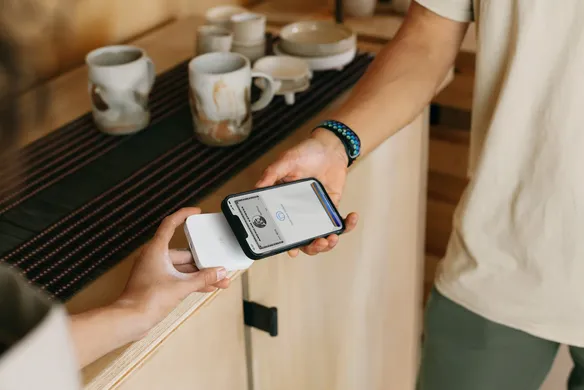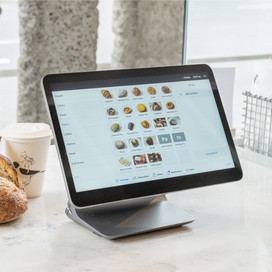Table of contents
Being self-employed may seem like a break away from the traditional 9-5 grind,, but there is more to becoming your own boss than simply throwing the towel in with your day job. If you don’t register as a self-employed sole trader, you may find yourself facing hefty fees concerning unpaid tax on your income. Here is Square’s handy guide on how to register as a self-employed sole trader, so that you can enjoy being your own boss.
Who needs to register as self-employed?
Put simply, anyone who wants to work for themselves, either full time, or just as an extra source of income will need to register as self-employed in Australia to pay taxes.
If you’re unsure if you count as self-employed or you’re wondering “why do I need to register as self-employed?, the business.gov.au website provides simple ways to figure out if you fall into this category or not.
In general, it is usually defined by a combination of the following:
- You run a business – either solo or in a partnership – that provides a service or sells goods for profit.
- You take responsibility for its successes and failures.
- You have multiple customers at one time.* You choose how, where and when you work.
- You can hire employees to help complete the work.
- You provide the main equipment to do your job, such as tools, tech or software.
- You charge a fixed price, as agreed with each customer.
Do I need to register as a sole trader?
Sole traders are independent business owners that operate their company solely on their own. As a business owner, you are legally liable for any and all debts and losses – these cannot be shared with anyone else. You can hire employees for your company, but you cannot employ yourself. Sole trader registration is common for tradies.
Self employment and tax
Sole traders are taxed on an individual basis. Individual tax returns include your business income and depend on the following factors:
- your business earnings;
- other sources of income;
- any and any deductions you are eligible for.
If you’re a sole trader with a successful business, you may need to pay up to 45 percent in taxes depending on your earnings, however, with the right accounting, you could benefit from tax benefits.
Many self-employed individuals employ an accountant to help deal with the financial admin that comes with being a sole trader or being your own boss, so this is certainly worth considering.
How to register as self-employed: step by step
To be self-employed in Australia, you must hold an Australian Business Number or ABN. An ABN is a unique 11 digit number that identifies your business to the government and community. To apply for an ABN, you need to do so through the Australian Business Register. An ABN is free and the process is simple. Here’s a step by step of what you need to do:
You’ll need:
-
Details of business owners and their tax file numbers.
- Tax or BAS agent number if you have one
- Prior ABN number
- ACN number if relevant
- Date you need your ABN (less than six months away)
- All official documents or legal paperwork — the entity legal name
- Authorised contacts
- Phone number, email address, and postal address for business owners
- Your primary source of income for the ABN
- Physical location of the business
Then, head to register.business.gov.au
Hit get started
Select new registrations to apply for: Australian Business Number (ABN)
Hit start applying
Then register or sign In
And fill out the forms as you go
Do I need to register for GST?
Now you’re self-employed you also need to think about GST (Goods And Services Tax) for the goods and services you use.
You will only need to register for GST if your annual turnover is more than $80,000.
Tools to help you work for yourself
Once you’ve registered as self-employed, there are many business tools you can use to make working for yourself as easy as possible.
If you’re looking for an easy and affordable payment device, the Square Reader is a great starting point at just $59. It’s powered by our Square Point of Sale (POS) app, so you can easily manage your business on the go.
For those starting a service-based business, such as an at-home salon or personal trainer, you can use a tool like Square Appointments to organise your day, create individual profiles and let customers book online. Similarly, our Invoice software is ideal for freelancing as it lets you send out digital estimates and invoices to clients. Whatever your small business needs, Square has the solution.
![]()











